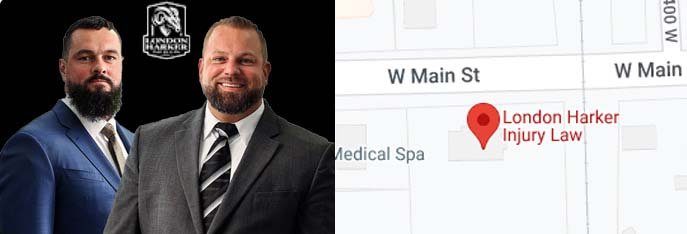Posted on Thursday, August 1st, 2024 at 9:00 am

Experiencing new traumatic brain injury (TBI) symptoms years after your injury can be alarming, especially if the initial injury seemed mild or appeared to heal without complication. However, it’s not uncommon to notice traumatic brain injury symptoms years later, long after the initial injury occurred.
Understanding the delayed onset of brain injury symptoms, the long-term effects of TBIs, and the steps to take if new symptoms arise is crucial for anyone who suffers a head injury. By taking steps early in your treatment, you can protect yourself down the line. If new symptoms appear, you can better identify them and connect them back to your original injury.
Delayed Onset Symptoms of Brain Injuries
Can a brain injury cause problems years later? Brain injuries can manifest in various ways, and sometimes, symptoms don’t appear until years after the initial incident. Several factors can cause this delayed onset, such as the brain’s ability to temporarily compensate for damage or the gradual development of complications.
Some symptoms that may take time to appear include changes in brain function, memory loss, headaches, dizziness, mood swings, and personality changes. These symptoms are clear indications that a brain injury may have had a more significant impact than initially thought.
One of the most common and severe delayed onset conditions associated with brain injury is chronic traumatic encephalopathy (CTE). Individuals who suffered repeated blows to the head can develop this serious condition later in life. CTE became known to the broader public largely through its association with former football players. Similarly, athletes who play soccer, rugby, hockey, and other contact sports are also at risk.
Long-Term Effects of Traumatic Brain Injuries
The long-term effects of TBIs can be debilitating and may include both physical and psychological symptoms. For example, physical long-term effects might involve chronic headaches, difficulty concentrating, sleep disorders, double vision, and sensitivity to light and noise. Emotional and psychological issues such as depression, anxiety, and irritability are common long-term symptoms after head trauma. These conditions can severely impact an individual’s quality of life and relationships with friends and family.
Additionally, in severe cases, individuals may develop conditions like epilepsy, dementia, or other neurodegenerative diseases. Even if a head injury initially doesn’t seem that bad, its effects can progressively get worse over time.
How to Link New Symptoms to Past Brain Injuries
If you begin experiencing new symptoms years after a head injury, it’s vital to determine whether there’s a connection between these symptoms and the past trauma. This process typically involves a detailed medical professional evaluation, including a medical history review, medical imaging, and neuropsychological testing.
It’s essential to inform your healthcare provider about your past head trauma. This way, they can consider the timeline of your symptoms in relation to the original injury and any other factors that could contribute to your current condition.
While it’s possible that your initial head trauma is the cause of your new symptoms, it’s also possible that something else in your environment triggered the symptoms. Identifying the most likely cause and establishing a connection is necessary for seeking compensation.
It’s also important to document your symptoms. Noting when they first appeared, their progression, and how they affect your daily life is important. This documentation can be valuable for your medical treatment and legal fight to recover compensation for your injuries.
Utah’s Personal Injury Statute of Limitations
According to Utah law, you have four years from the date of your injury to file a personal injury lawsuit. But if your symptoms don’t appear until years after the incident, will you be able to seek compensation?
In some cases, the time limit on filing a lawsuit may not begin until you knew or should have known you had suffered an injury and its cause. This delayed statute of limitations could come into play if your traumatic brain injury symptoms don’t manifest until years after the incident.
You should speak to an experienced personal injury attorney as soon as you’re suffering from the effects of an injury. They will assess your case and help you determine if you can still file a compensation claim.
Protecting Yourself in the Future
If you recently suffered head trauma, there are some things you can do to protect your future rights.
First, avoid settling any legal claims until you have reached your maximum medical improvement (MMI). This is the point at which your treating doctor believes your condition will not improve any further. Waiting until this point can make it easier for you and your attorney to assess your future medical expenses. Settling too early can leave you without adequate compensation.
Second, document your injuries immediately after the accident and throughout your treatment. Keep detailed records of all medical treatments and symptoms you experience, even if they seem minor. This documentation could serve as crucial evidence down the line for connecting new symptoms to your old injury.
How a Personal Injury Attorney Can Help
 If you’re dealing with traumatic brain injury symptoms years after your initial accident, find yourself an experienced brain injury attorney who can help in a few ways, including:
If you’re dealing with traumatic brain injury symptoms years after your initial accident, find yourself an experienced brain injury attorney who can help in a few ways, including:
- Gathering Evidence – An attorney can assist you in gathering evidence that connects your symptoms to your injury and the at-fault party. This evidence may include medical reports, accident scene photos, eyewitness statements, and expert witness testimony.
- Navigating the Legal System – It can be challenging to navigate the legal system even without an injury. An attorney can assist you in submitting your claim within the timeframe indicated by the statute of limitations. They will help you meet any other deadlines associated with your case.
- Negotiating with Insurance – Before your case goes to trial, an attorney can negotiate a settlement agreement with the at-fault party’s insurance provider. Settlements can avoid time-consuming litigation while getting you the compensation you deserve.
- Litigation – If the insurance company refuses to give you a fair settlement, an attorney can present your case before a judge and jury and seek the maximum compensation available.
Utah Brain Injury Attorneys
If you are suffering due to a traumatic brain injury, contact London Harker Injury Law at 77CARCRASH or through the online form for a free consultation with one of our experienced Utah brain injury attorneys. Our law firm is dedicated to helping people like you get the compensation they deserve. We’ll review your case, explain your legal options, and answer any questions you have. With our proven track record of successful case results, you can trust us with your case.



